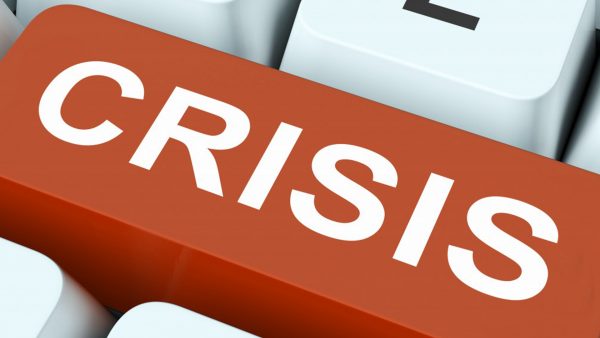Running a business can be quite challenging. This requires you have as many management skills as are available. Several things can go wrong in the process of carrying out your routine activities. Valuable equipment can break down unexpectedly. A worker might just decide to resign without prior notice.
Read more about Business
Virtually anything can come after your business. Typically, any business can run into a crisis of any sort, but life happens, and we will always get to deal with it.
In an organizational context, Shapivo defines crisis as an “unplanned situation that causes major disturbance to the organization and the people within it”. This means that crises obstruct the normal flow of activities within an organization. In many cases, this obstruction could be detrimental. Here are four (4) steps you can take to manage your business crisis.
-
Plan Ahead
You can never go wrong with planning, especially strategic planning. The importance of planning cannot be overemphasized in our individual lives and even in business. Have a crisis plan before it occurs. If you start thinking of how to manage a crisis after it has struck already, it is too late. Although we cannot completely plan for every crisis situation and have road maps for them, at least, it will save you much of the confused running around you will be doing if there is no plan.
Imagine different types of crises that your business could possibly run into and write them down. Then make projections for best- and worst-case scenarios of such situations. List the parties that could be involved in the crisis and draft out specific plans on how to handle them if and when it occurs. You can go the extra mile to set up teams that will specifically handle crises. This is a proactive measure that will pay off in the long run. Let these people have an in-depth understanding of their roles in the face of crisis. This will also ease the burden off your shoulders.
Sign up to the Connect Nigeria daily newsletter
-
Identify The Crisis
This is more on the reactive part when the crisis must have happened or are on the verge of happening. Before solving a crisis situation, you must first identify the crisis and what it entails. There are different categories of crisis such as technological crisis, caused by technological error, natural disasters – flood, earthquake etc. financial disasters, competition crisis, amongst others. Some crisis situations happen suddenly while others unveil gradually. Whatever the case, identifying the crisis is the best way to begin solving it.
-
Involve Your Employees
In the event of a crisis, it is important you let your employees in on the situation. Generally, staff training goes a long way to helping an organization move forward. The process of managing crisis is not an exception. Feed your employees all the information they need to handle the crisis situation. Teach them how to respond and be prepared for queries from external sources – that is, people outside of the organization. As a manager or business owner, you need to build a strong leadership team that can assist you with dealing with the situation. Lead by example. Encourage the team to put their best foot forward. Incorporate the company value into them and ensure you and your team members are in sync as regards managing the chaos.
-
Communicate With Your Customers
It is vital that in a crisis situation, you also reach out to your customers. There are certain types of crises such as technological crises, where your product is probably non-functional or not efficient enough in meeting the needs of your customers. In this case, there might be reviews. It will be in the best interest of your business to respond to them. In severe situations, you can send out an official statement regarding the situation. It will assure them that you and your team are on top of the situation.
When your business experiences a crisis situation, don’t panic. Instead, apply the reactive steps mentioned here. However, even if your business is sailing on a stable sea, be proactive and prepare for the unexpected.
Featured Image Source: Mate Plus
Got a suggestion? Contact us: [email protected]


